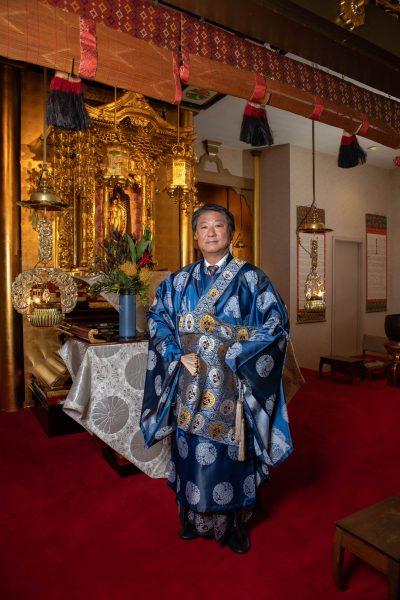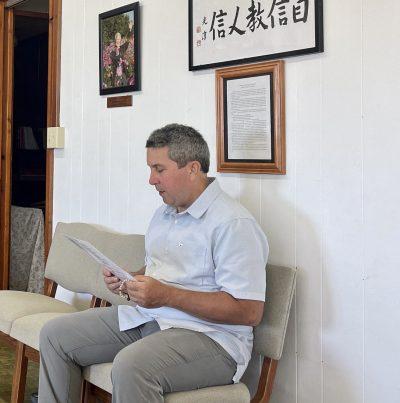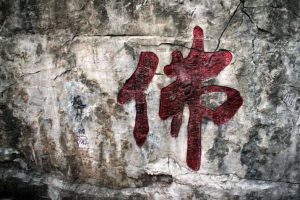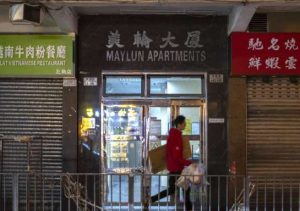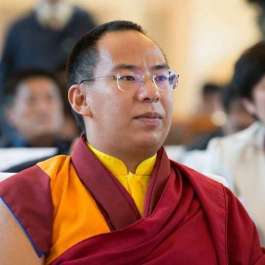
Lanai Hongwanji Mission, a 97-year-old temple on the sparsely populated Hawaiʻian island of Lanai, is facing diminishing numbers of congregants. As membership declines, the temple may be forced to close—similar to the fates of many Jodo Shinshu temples across Hawaiʻi.
Several factors have combined to bring about this change: older generations of the mostly-Japanese congregation have gradually passed away; others have moved off of the island to be closer to healthcare facilities; and younger generations have failed to take their place as some become non-religious or leave the island in search of a better life.
“Most of our congregation is dead,” said Billie Jean Marks, who joined the temple after moving to Lanai City in the early 2000s. (Honolulu Civil Beat)
Traditionally, Lanai Hongwanji has served members of Japanese ancestry. Efforts have been made, however, to diversify the congregation in recent years. Rev. Shinkai Murakami, resident minister of Maui’s Wailuku Hongwanji, is one of four ministers who visit regularly from Maui to host services. Murakami suggested that the congregation would need to move away from its traditional practices in order to survive.
“The Hongwanji used to be the Japanese temple but we all have to throw away this idea,” said Murakami. “Hongwanji should be a community temple. We need to make room for everybody, otherwise the Hongwanji’s are going to close.” (Honolulu Civil Beat)
In his time as a resident minister in Maui, Murakami has actively reached out to people of non-Japanese backgrounds, including Puerto Ricans, African Americans, Caucasians, Filipinos, and Hawai‘ians. This has included work in helping non-Japanese congregants move into positions of power in the temple.
“I don’t talk about too much religion,” Murakami said. “I talk about daily life and what is the best way to make a happy life. And I always talk about how kindness can make our lives more meaningful and happier.” (Honolulu Civil Beat)
The Jodo Shinshu tradition in Hawai‘i has 32 temples and 4,300 members according to current reports. That number represents a decline of more than half from its reported 10,000 members in the 1970s. As congregations have declined, some have merged and others have closed entirely. With only 3,378 full-time residents on the island, the Lanai temple might find it difficult to maintain a congregation large enough to stay open.
“We haven’t forgotten Lanai,” Matsumoto said. “But I think that there will come a time, soon perhaps, that we have to address what’s going to happen to Lanai Hongwanji. If the writing is on the wall, so to speak, we should take the bull by the horns and plan, well, what are we going to do going forward?” (Honolulu Civil Beat)
Like many areas of Hawai‘i, incoming wealth is driving out locals in Lanai by making it difficult to afford the cost of living. Lanai has seen some 98 per cent of its landmass sold to billionaire tech mogul Larry Ellison. Ellison has taken over nearly all of the property on Lanai, including most homes and businesses, in turn becoming the island’s main employer. In turn, he has been dubbed “The Lord of Lanai” by Bloomberg Businessweek and has been likened to a feudal king, acting as both landlord and boss for many of the island’s residents and instituting short-term leases to ensure speedy removal of unwanted tenants.
Currently, Lanai Hongwanji has 15 members according to records of annual gifts. However, the number of people attending regular services is much smaller. The temple’s vice president, Chris Richardson, wonders if extending beyond traditional offerings—including practices such as yoga and meditation—might help revive attendance.
“This place was built by Japanese Buddhist families,” said Richardson, who converted from Catholicism to join the temple 15 years ago. “It was maintained by Japanese Buddhist families. The members were Japanese. And my personal view is that there was a mistake where people took that a little too far. Whether knowingly or unknowingly, they were excluding other people who are not Japanese. And now we can’t get Buddhist families in here like it used to be.” (Honolulu Civil Beat)
While recognizing the danger of changing too much and losing its identity, Richardson acknowledges that the real danger would be having nobody use the temple at all.
Read more
A Buddhist Temple On Lanai Sheds Tradition To Fight Decline (Honolulu Civil Beat)
Larry Ellison’s Lanai Isn’t for You—or the People Who Live There (Bloomberg)
Related news reports from BDG
Buddhist Priest in Hawai‘i Turns to Acceptance as He Prays for End to COVID-19
Hawai‘i Buddhists Host Global Services for International Day of Peace
Buddhists in Hawai‘i Lead Bell-ringing for International Day of Peace
Buddhist Funerals in Japan See Fewer Mourners and Delays in Response to the Coronavirus
Oldest Buddhist Temple in Hawai‘i Burglarized, One Arrested


